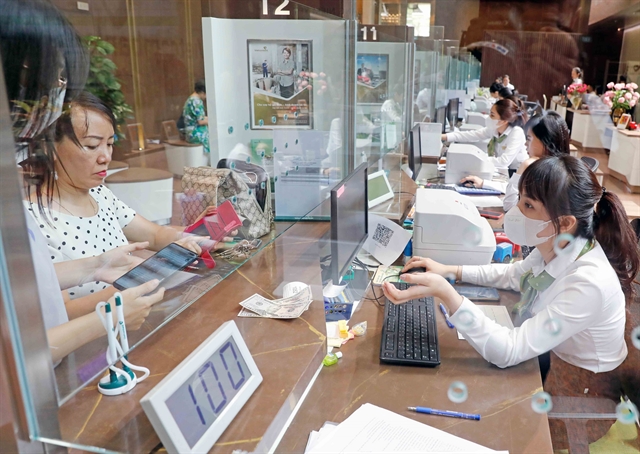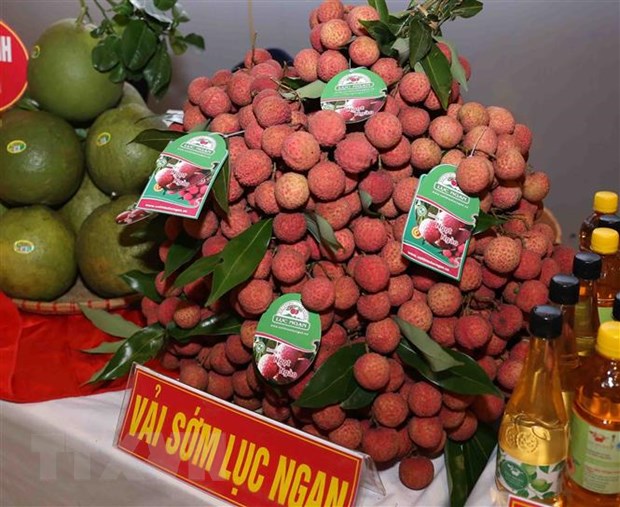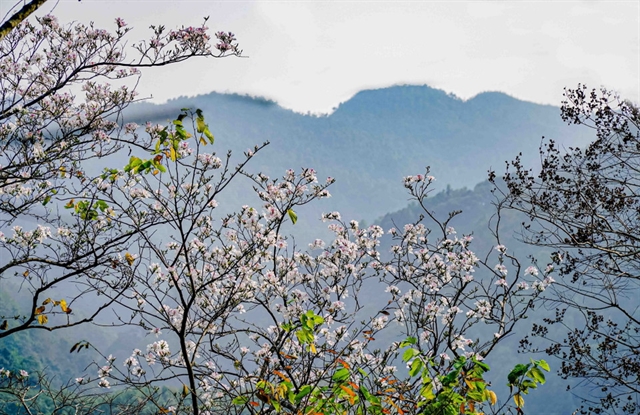 Economy
Economy


|
| Lục Ngạn thiều lychee is the first agricultural product of Việt Nam granted a certificate of geographcial indication in Japan. — VNA/VNS Photo Vũ Sinh |
HÀ NỘI — It’s critical for Việt Nam to focus on promoting intellectual property rights for areas associated with agricultural products which would enable farm produce to go far in international markets.
The Ministry of Agriculture and Rural Development was planning to propose the Government approval to build a decree on managing national brands of agricultural products. This is pressing as the export of agricultural products was seeing a significant drop in the context of increasing uncertainties in the global market.
Statistics showed that the agro-forestry-fishery export value was estimated at US$6.28 billion in the first two months of this year, dropping by 22.5 per cent against the same period last year.
Director of the ministry’s Agro Processing and Market Development Authority Nguyễn Quốc Toản said that economic and political instabilities coupled with changes in production policies of many countries made many farm produce of Việt Nam lose advantages, such as coffee, rice, cashew, tra fish and timber and wooden products.
It’s time to attach greater attention to protecting brands and geographical indications for farm products to go far in the international markets, he said, adding that protected brands and geographical indications would help increase value while creating confidence among consumers about their origin and quality.
Bắc Giang was a good example of protecting the brands of agricultural products in foreign markets.
The northern province was known for the largest thiều lychee production in Việt Nam with a total area of more than 28,000 hectares and an annual output of about 200,000 tonnes. The specialty was thiều lychee from Lục Ngan District which provided 120,000 tonnes and brought a value of more than VNĐ3 trillion each year.
Lục Ngạn thiều lychee is currently granted certificates of industrial property protection by the Ministry of Science and Technology in seven countries, including China, Laos, Cambodia, the Republic of Korea, Singapore, Australia and the US. This is also the first agricultural product of Việt Nam granted a certificate of geographical indication in Japan, opening up significant opportunities for this product to reach out to international markets.
Bắc Giang also developed trademarks for Yên Thế hill chicken which was protected in China, Laos and Singapore and Chũ noodle protected in Japan, the Republic of Korea, Thailand and Laos. The province also built brands for Yên Dũng fragrant rice and Vân Village wine.
Nguyễn Phúc Thương, Deputy Director of the provincial Department of Science and Technology, said that trademark protection contributed to increasing the value of agricultural products. Products with protected trademarks had guaranteed quality and origin, met the requirements of export markets and gained the trust of consumers.
However, the protection of geographical indications in foreign markets remained complicated in terms of time, procedures and costs, he said.
For example, it took nearly three years to negotiate the protection of geographical indication for Lục Ngạn thiều lychee in Japan.
Many other provinces and cities paid attention to the development of intellectual property for local products.
However, the use of geographical indications for the commercialisation of products remained inefficient.
Stressing that products with protected geographical indications were mainly agricultural products, Mai Văn Dũng, from the Intellectual Property Office of Việt Nam, said there were challenges in the protection of geographical indications.
While there was an increasing trend of protecting processed products, not many processed products of Việt Nam were protected, he said. In addition, the production scale of protected products remained modest.
According to Trần Lê Hồng, Deputy Director of the Intellectual Property Office of Việt Nam, the number of geographical indications increased strongly recently but just a few products were successfully commercialised in the domestic market and for exports.
To date, only 40 out of 94 products with protected geographical indications were exported, of which, only 26 were printed on the packaging and labels when exported while the rest of 14 were exported under other brands.
According to Thương, greater effort must be taken to increase communication and provide training to improve the awareness of intellectual property and form a culture of intellectual property protection as well as encourage innovation.
Consultancies and guidance would also be given to localities, businesses and cooperatives in registering and establishing rights to products of high economic value with a focus on building geographical indications for key products.
Special attention should be paid to foreign market research for commercially potential products to implement protection in export markets.
Trademark protection alone was not enough, he said, adding that it was also critical to strengthen production linkage and develop value chains to ensure traceability, origin and quality of products. — VNS




